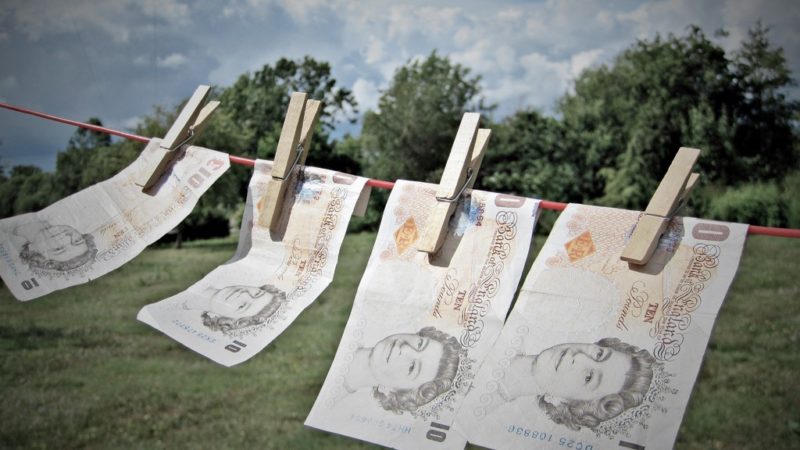'Accounting firms have been doing audits for over a century, but still can’t deliver robust and honest audits.'

Prem Sikka is an Emeritus Professor of Accounting at the University of Essex and the University of Sheffield, a Labour member of the House of Lords, and Contributing Editor at Left Foot Forward.
Corruption is institutionalised in the UK. The finance industry routinely fleeces people by mis-selling financial products, money laundering and forging customer signatures. The corporate sector has its own private police force in the form of auditing firms who supposedly act as watchdogs highlighting financial irregularities. Accounting firms don’t bite the hand that feeds them and it is hard to recall any malpractices exposed by them. Even worse, they themselves engage in frauds and irregular practices.
Big accounting firms dominate the state guaranteed markets of external auditing and insolvency. Fees are guaranteed even though the regulator, the Financial Reporting Council (FRC), says that 29% of the audits delivered by the seven largest audit firms – BDO, Deloitte, Ernst & Young (EY), Grant Thornton, KPMG, Mazars and PricewaterhouseCoopers (PwC) – fail to meet the basic standards.
Accounting firms have been doing audits for over a century, but still can’t deliver robust and honest audits. Accounting scandals at BHS, Carillion, Thomas Cook, Patisserie Valerie, London Capital and Finance, Quindell, Autonomy, Rolls Royce, BT and Tesco provide a glimpse of audit failures. Puny regulatory fines have emboldened the firms.
Following the January 2018 collapse of Carillion, a parliamentary report highlighted KPMG’s audit failures and also criticised PwC, Deloitte and Ernst & Young who acted as advisers to the company. Together, they collected nearly £72m in fees. A detailed investigation was promised by the FRC and a report is yet to be published.
For audit quality assessments, the FRC inspectors also examine a sample of audits conducted by the firms. They had chosen to examine the 2014 and 2016 audit files relating to Carillion. KPMG has now admitted that it supplied forged documents to the FRC audit quality inspectors for the 2016 audit of Carillion. These included false spreadsheets and minutes of meetings, fabricated months after the audits. A junior member of the staff is being blamed by KPMG partners, which raises further questions about the supervision of staff, reviews by partners, prevalence of irregular practices and corrosive organisational culture.
KPMG is no stranger to irregular practices. In August 2021, the firm was fined £13m. Its insolvency partner pushed Silentnight, which was a client of the accountancy firm, towards insolvency, so that the private equity group HIG, the client that it really wanted to cultivate, could buy the business out of administration by dumping the defined-benefit pension scheme for Silentnight’s 1,200 staff. KPMG’s partner lied to the Pensions Regulator and to the Pension Protection Fund. The fine swelled the coffers of the Institute of Chartered Accountants in England and Wales, which authorised the cheating, lying partner.
Back in 2005, the US authorities fined KPMG $456m after the firm admitted “criminal wrongdoing” for enabling its clients to evade taxes. At the time it was the largest criminal tax case ever filed in the US. A number of the firm’s personnel went to prison, but with the help of its political friends it remained in business.
The US revelations did not persuade the UK to investigate the firm or the tax avoidance industry. In sharp contrast, it bestows royal honours upon partners of KPMG and other big accounting firms. In 2012, KPMG’s tax partner became chairman of HMRC, the UK’s tax authority.
KPMG is not alone in nefarious practices. Following a parliamentary inquiry into the collapse of BHS and audit failures, the FRC examined audits conducted by PwC. its report noted that for the final audit of BHS, the audit partner spent only two hours on the job. For all practical purposes, the audit team was led by a junior person with only one-year’s post qualification experience. Most parts of the financial statements were not properly audited. To appease BHS directors, the audit partner also backdated the audit reports.
Audits have become worthless as falsification of audit work is normalised. Audit firms expect staff to do the work in less and less time. The staff respond to tight time budgets by falsifying audit work i.e. claim that the required work has been done when that is not the case.
The hand of big accounting firms is all too visible in tax dodges exposed by Paradise papers, Panama papers, Luxembourg papers and numerous other leaks. Yet there is no regulatory inquiry. Numerous court cases have stated that the tax avoidance schemes marketed by big UK-based accounting firms were unlawful. Yet none of the big firms are investigated, prosecuted or fined. Big firms continue to receive government contracts and advise government departments.
Big accounting firms are a major site of contemporary corruption. They plunder the public purse and face no retribution. Current forms audits by accounting firms produce comfort but deliver little of any value. Too many accounting firms engage in fraudulent and irregular practices to enrich their partners. Their power must be curtailed. They need to be broken-up. Their partners need to be made personally liable for the harms they inflict. Therefore, the liability protections given to them by limited liability partnerships (LLP) law must be withdrawn. Audits of major corporations must be conducted by an independent state body. Audit files need to be publicly available.
To reach hundreds of thousands of new readers we need to grow our donor base substantially.
That's why in 2024, we are seeking to generate 150 additional regular donors to support Left Foot Forward's work.
We still need another 117 people to donate to hit the target. You can help. Donate today.



